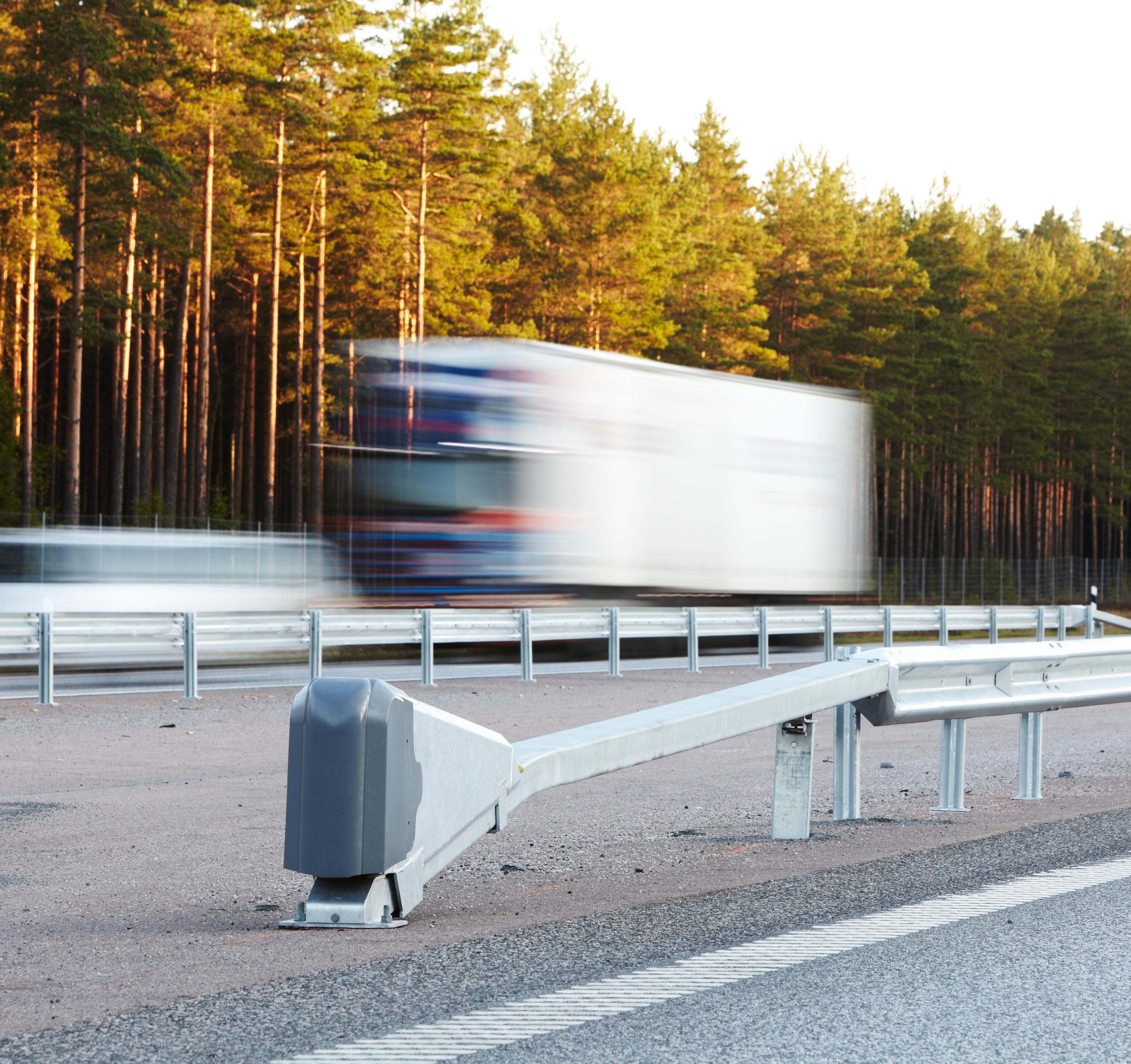


PROJECT PARTNERS

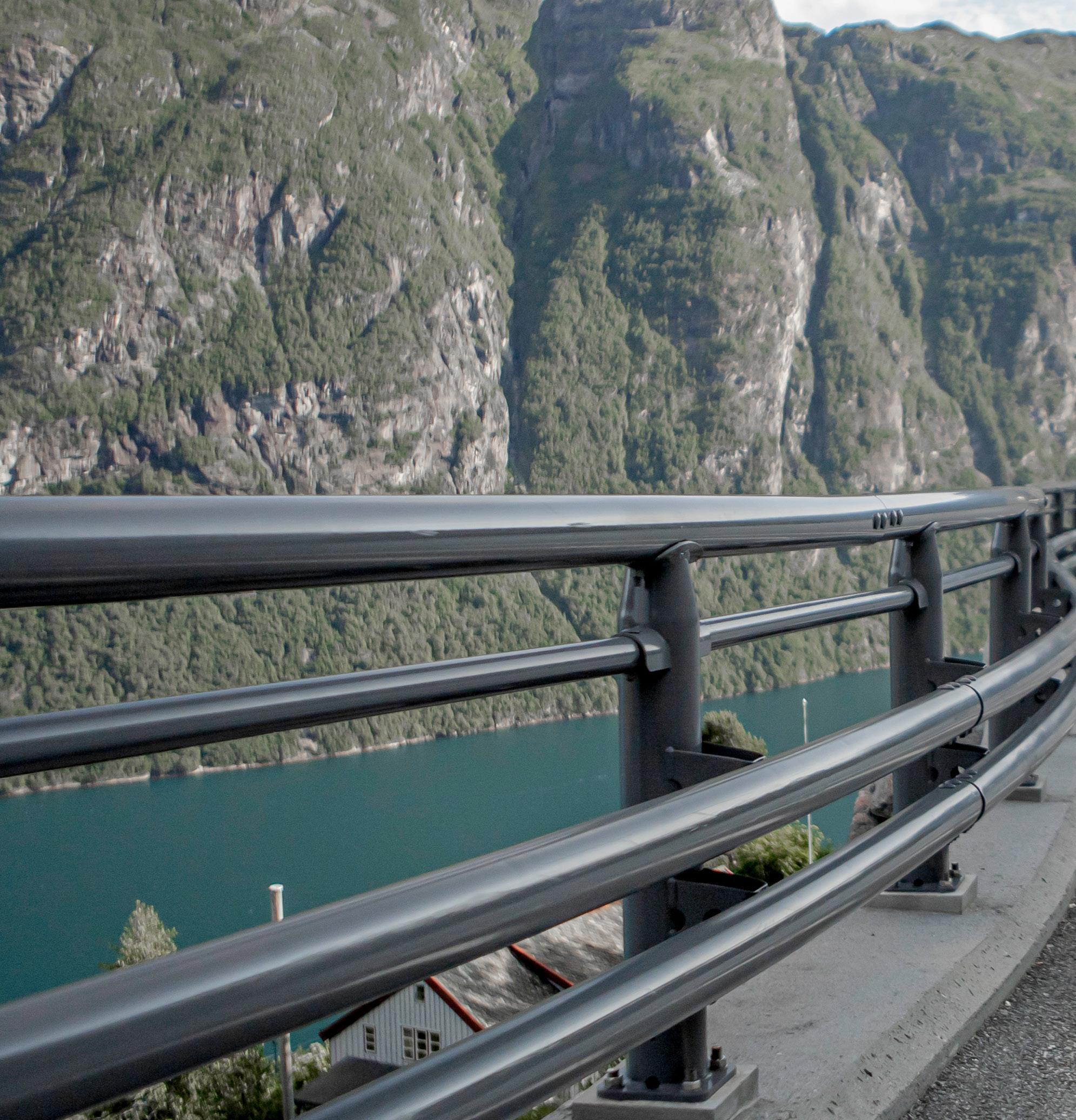
BUSINESS INTERVIEW
Saferoad Group’s Supply Chain Director, Steinar Tafjord, explains how digitalisation has played a key role in creating synergies across the group, thus reducing costs, increasing efficiency and cash flow, and lowering CO2 emissions.
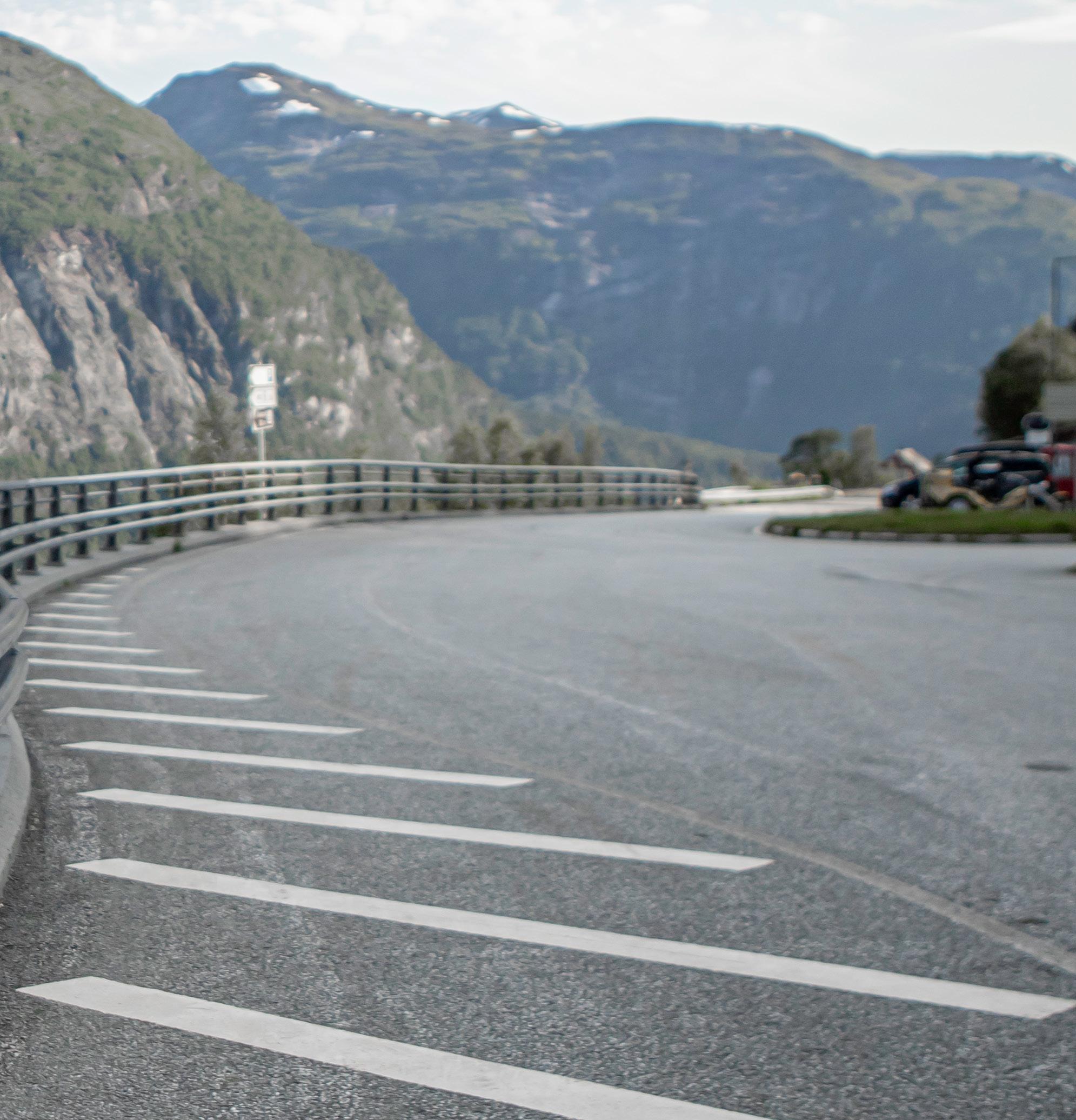
teinar Tafjord joined Saferoad Group 18 months ago as Global Category Manager Logistics before being promoted to Supply Chain Director when he was tasked with investigating the synergies between the companies within the group. Steinar reflects, “When I realised how much work there was to do across the whole supply chain, it was natural to take on more responsibility.
The main project is to achieve a transparent supply chain throughout the group to gain more control, insights and recover costs. Saferoad Group consists of more than 50 business units, so our aim is to gather all the data into one platform.”
Having control over all of Saferoad Group’s costs enables the company to take steps to


reduce them. The supply chain in Saferoad is data rich, but information poor. Due to the highly complex and fragmented nature of global supply chains, moving things from A to Z is more complicated than ever before. Steinar continues, “It’s when you have control of your data and total spend, you can do something about it. You can also reduce your CO2 emissions by combining and consolidating transport and creating synergies between the companies. With digitalisation, you get insights
into the operations within seconds or minutes. It is about creating dynamic KPIs and being more transparent.”
When it comes to reducing your carbon footprint and making it a priority, Steinar says that is one of the key elements that the next generation of employees really cares about when choosing a company to work for. He says, “We are focused on sustainability and getting the data on it, but most importantly,
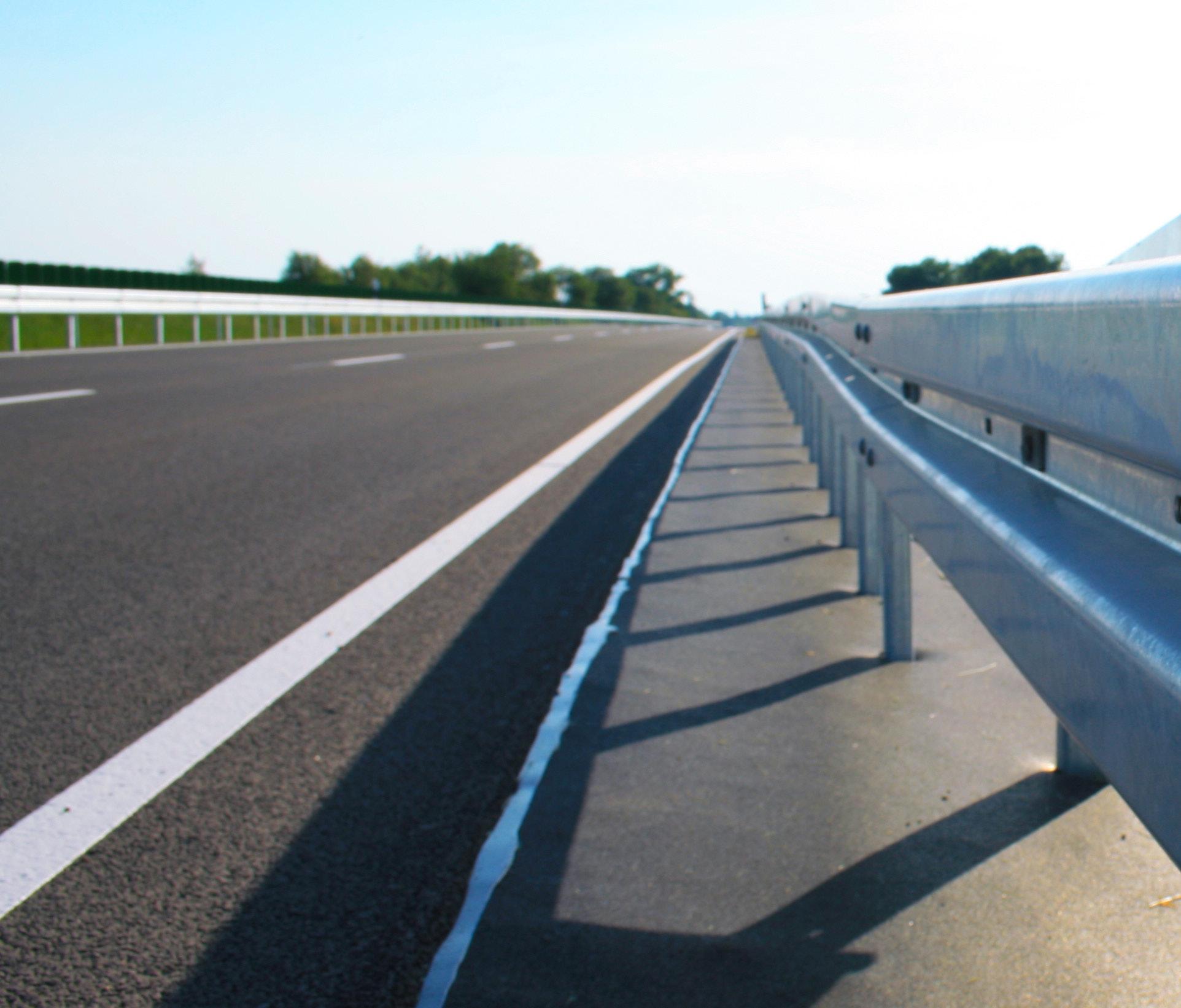
“We are focused on sustainability and getting the data on it, but most importantly, we are trying to do something about it”
Steinar Tafjord, Supply Chain Director
we are trying to do something about it. This is very important for the next generation of young people when they are looking for a job today. They are aware of who their employer is, and theirs effort to become more environmentally-friendly with green logistics.”
Sustainability is therefore a key driver of digitalisation for Steinar and his team, as well as a focus on innovation. Steinar continues, “Our companies produce road
safety equipment, so being more innovative will create safer systems. At the same time, the system will also be lighter and stronger, and in doing so, we are reducing our total weight. When we deliver a full truck of finished goods, our load will not be as heavy, which is good for the environment. Our team is continually looking for better systems to help us improve for tomorrow. We work together with customers and partners to meet the future needs of mobility and
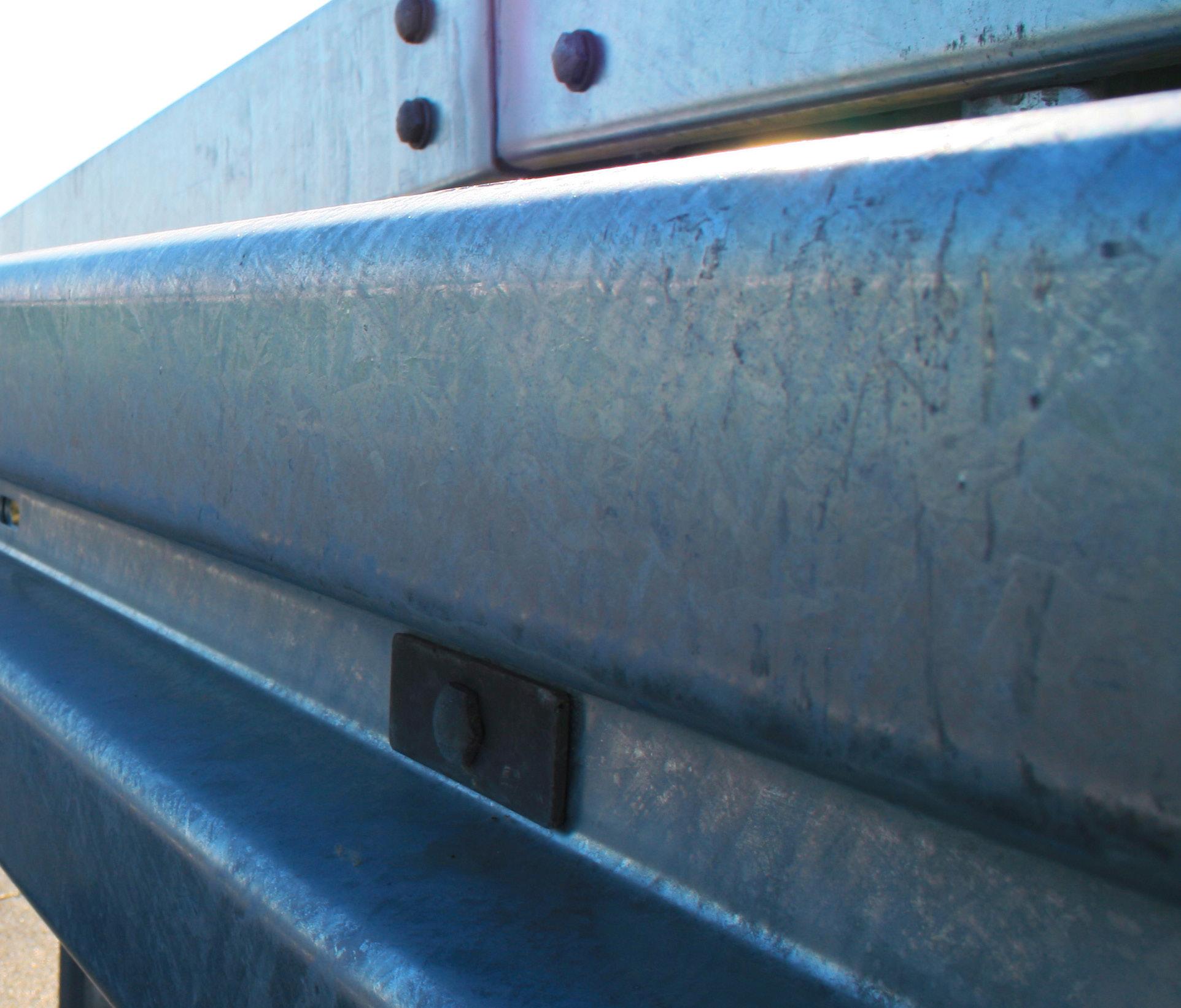
“Things are happening today at a speed that we have not seen before. If you make a decision, you have to make it based on facts and comparative analytics”
improve the infrastructure quality for travellers on the roads. Our team of experts is dedicated to making life on the road safer. Through resilient road infrastructure products, indepth expertise, vast experience and innovation as part of our DNA, we contribute to shape the future of infrastructure.”
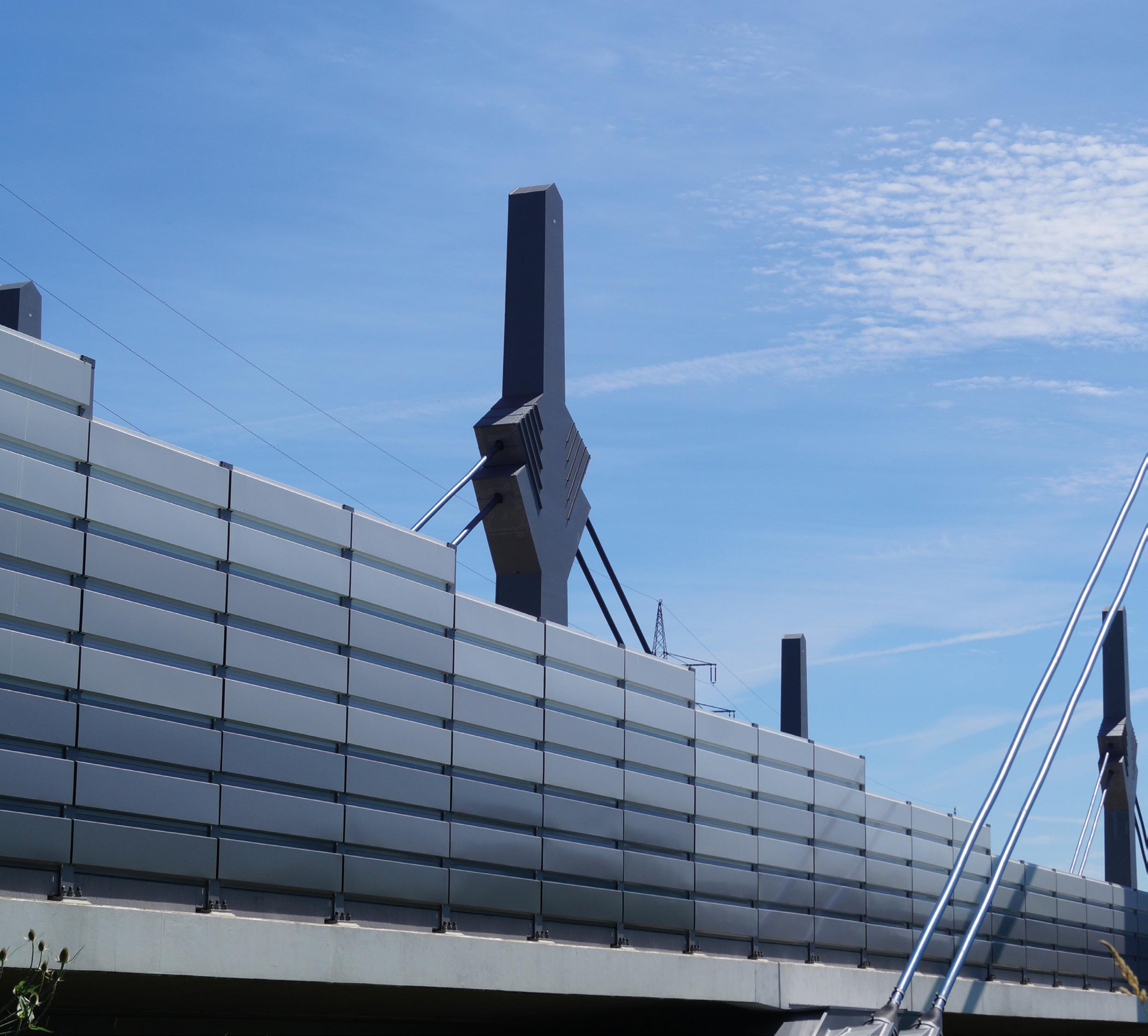
Being data-driven enables Saferoad Group to make decisions much faster. Steinar explains, “Things are
happening today at a speed that we have not seen before. If you make a decision, you have to make it based on facts and comparative analytics. Without these insights, you will lose the race. Companies with access to data can make fast decisions, giving them a great advantage. We see that the global supply chains are changing from one day to another. For example, when trying to buy steel from a company that suddenly no longer exists, we need to find new
6
ways to import it, as well as faster and more effective transportation. In addition, prices of electricity, gas, transport, raw materials etc are increasing at the speed of lightning. We need to create better synergies to keep ahead of the pack.”
Steinar believes the Covid-19 pandemic taught companies a lesson that they needed to change the way they planned. He says, “We need better forecasts and control over all
our supply chain to be able to track products all the way. When Covid came along, Saferoad Group was not able to meet with suppliers and customers, and therefore had to rely on the systems. In doing so, you really need to have control over your systems. After Covid, we focused heavily on having good forecasts, so we can now plan ahead much better, and in the event that something happens, we can react much faster. It is obvious that S&OP, good sales and production forecasts give us the benefits of better and more strategic purchases, while at the same time, reducing costs, improving liquidity, and ultimately providing a better EBIT.”
Saferoad Group views all the companies within the group as part of a team, but the challenge lies when the companies are using different ERP systems and have different ways of working. Steinar adds, “The volume of data is enormous, so we need to collect the data together into one shared platform. In doing so, we will create a heatmap, and we will be able to see where we are transporting, what we are transporting, the type of transport (train, short-sea, pram etc), the transport company, how heavy the load is, and the consolidation rate.”
According to Steinar, supply chain collaboration is an essential
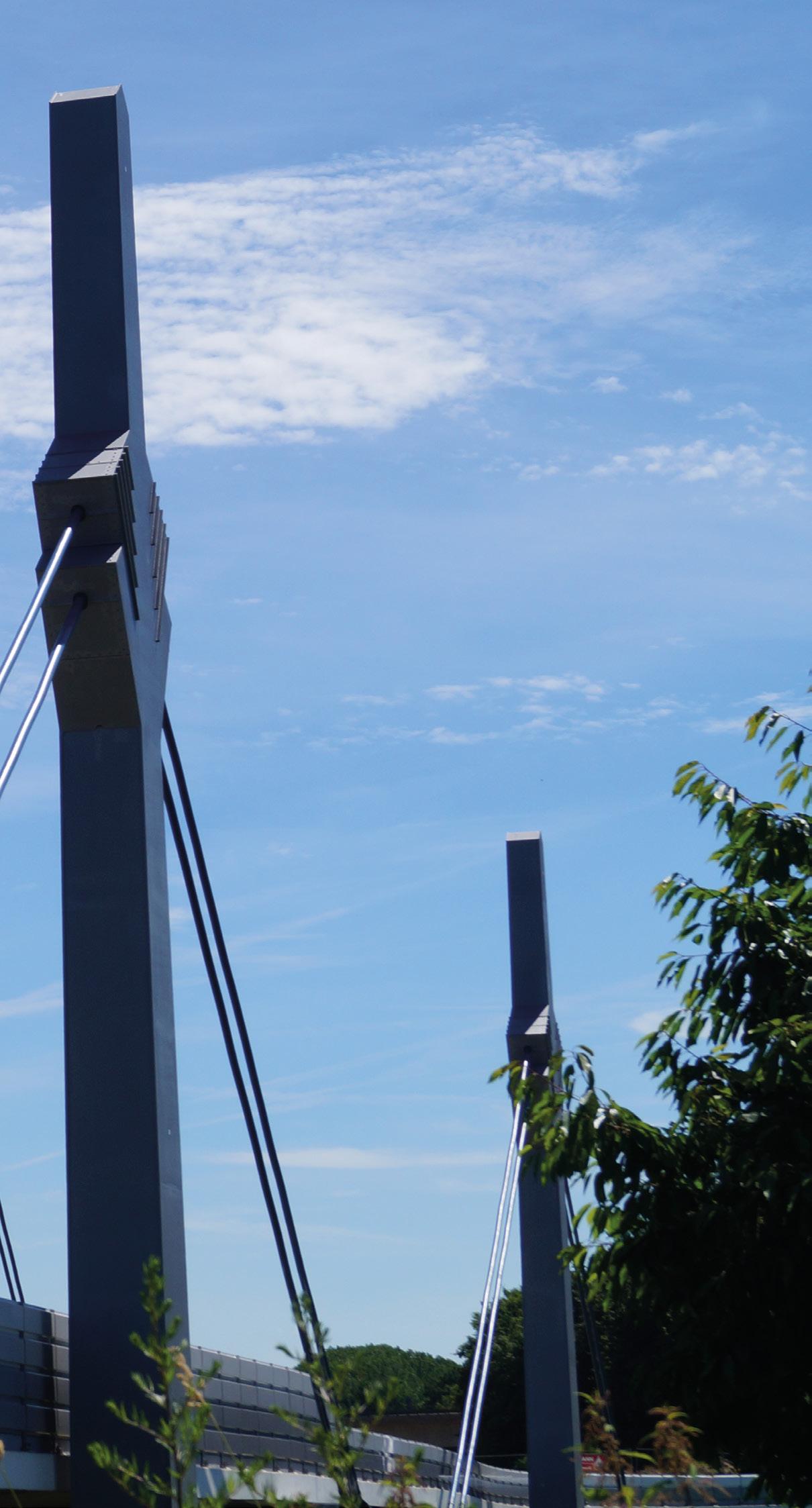
7


“We aim to increase circularity and reduce our climate impact, to produce and deliver sustainable products, to ensure health safety satisfaction of our employees, and to achieve a transparent supply chain”
Steinar Tafjord, Supply Chain Director
DSV help you reduce the carbon footprint of your supply chain
As one of the world’s largest transport and logistics companies, we at DSV carry a great responsibility for the green transition. With core services like consolidation, modes shift and loading optimisation, we are already contributing to lower down the CO₂ emissions in our day-to-day business, but to protect our climate we need go further. That is why we have developed Green Logistics. A set of solutions ranging from CO₂ reporting and strategic supply chain optimisation to emission compensation and sustainable fuel offerings.
Our Green Logistics solutions explained:
CO² reporting:
CO₂ reporting offers you the insight and analysis to drive reductions of your supply chain emissions. DSV’s CO₂ Reporting solution offers you a comprehensive overview and data analysis of your supply chain emissions, with reliable and accurate reports collaborating with one of the leading companies in cargo transport emission calculations.
Green supply chain design & optimisation:
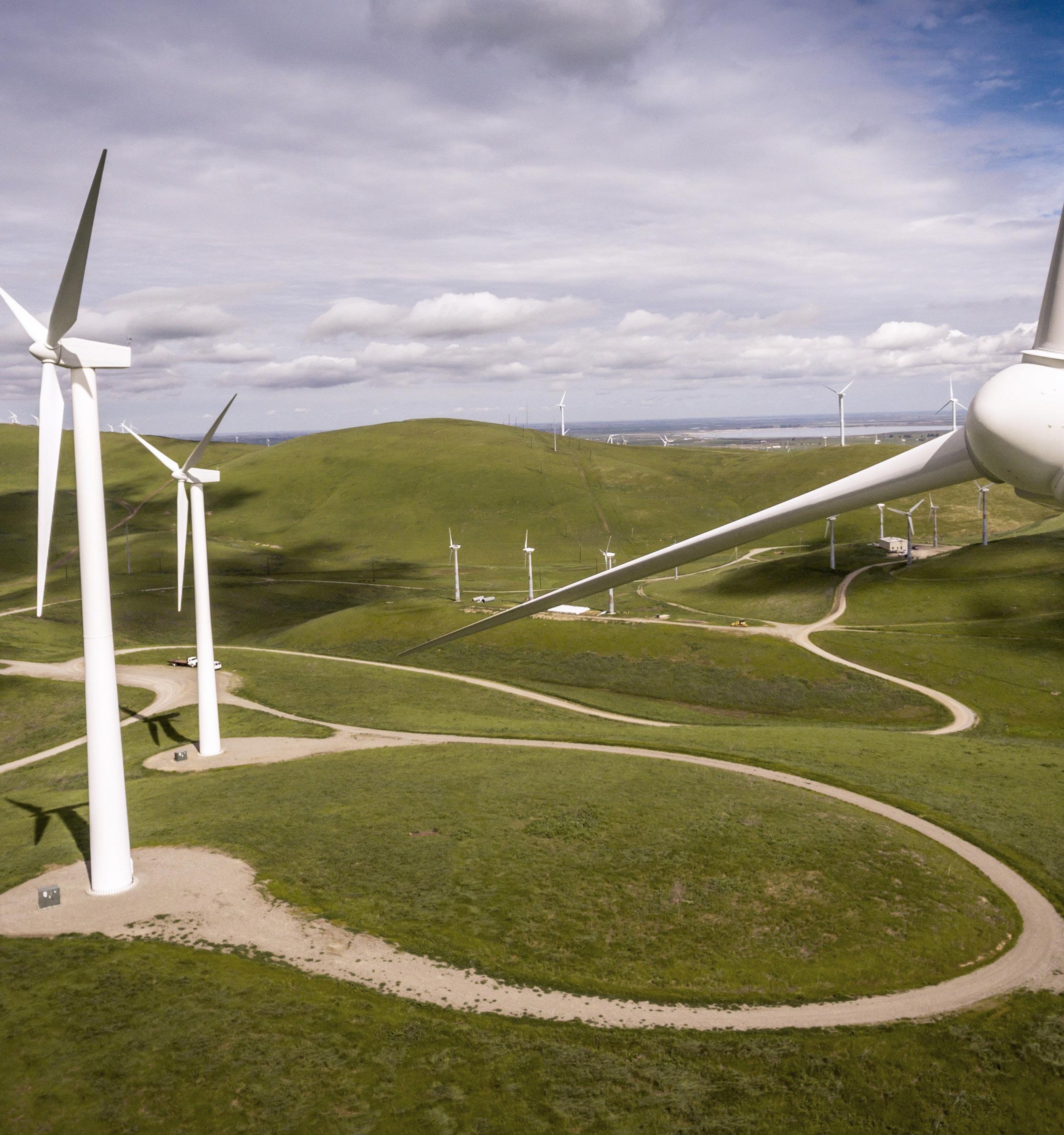
Whether you want to meet ambitious climate targets or improve the efficiency of your supply chain, a full supply chain analysis will help you achieve this. DSV offers holistic green value-added services to help reduce costs and CO₂ emissions and design sustainable supply chains for the long-term.
Sustainable fuel offerings:
Reduce emissions without changing your operations. DSV is focused on meeting the immediate needs of its customers. We are committed to helping you find the right mix of fuel solutions. Whether by road, air or sea, you can benefit from our knowledge as we manage the process from start to finish.
Carbon offsetting:
Compensate your CO₂ emissions with DSV Green Logistics by funding an equivalent CO₂ saving elsewhere, supporting important sustainable projects worldwide. Carbon Offsetting projects extract or save CO₂ from being released into the atmosphere.”
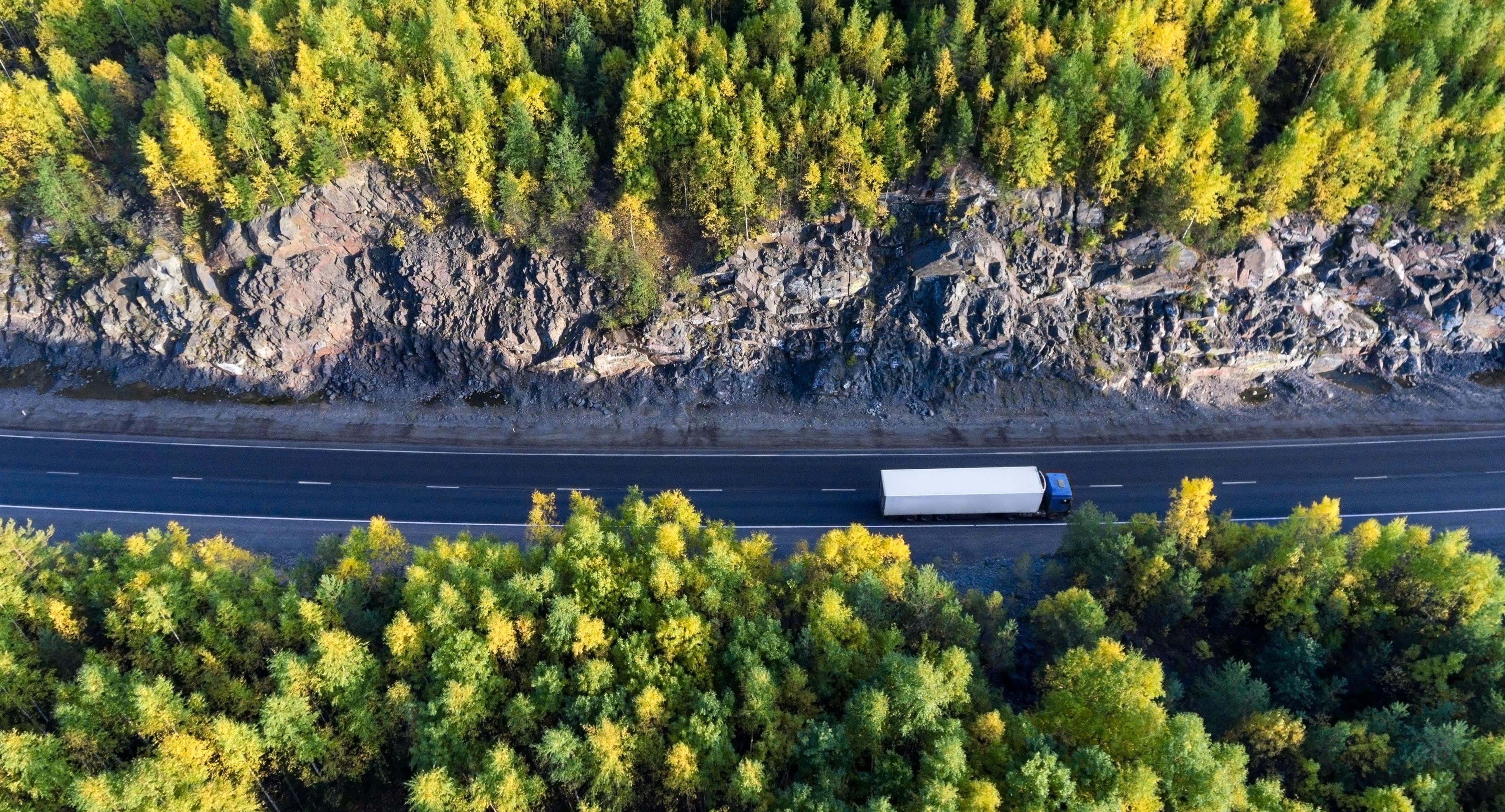
>> Learn more at www.dsv.com
ingredient in order to be successful. He says that the focus needs to shift to viewing suppliers as partners, and that companies must collaborate to make themselves stronger. Three such partners Steinar mentions are Softlogs, NShift and DSV Global Transport and Logistics. He continues, “We transport more than 200,000 tonnes of steel and finished products every year, not to mention the other materials we transport. Hundreds of trailers head across the
“In logistics, transport businesses are not very ahead when it comes to data sharing and digitalisation. For us, when we enter into a collaboration, the forwarding company needs to share information and be data transparent. DSV is ahead of the curve in this respect, so they are a very important partner for us”

continent every day, so we need to have a system to select, book and control all the transport. We need to be able to book the right transporters at the right time, and have as much as possible into one system. NShift has the world’s biggest carrier library, so they are a key player for us. When we are up and running, we will have more control over all our transport across Europe. The data will also help us to get on top of our Scope 3. For example, we will be able to see where we can create synergies between the companies to reduce our CO2 emissions. NShift is playing a huge role in our digitalisation process.
“As far as deep-sea transport is concerned, we transport thousands of containers every year, especially from the Far East. In logistics, transport businesses are not very ahead when it comes to data sharing and digitalisation. For us, when we enter into a collaboration, the forwarding company needs to share information and be data transparent. DSV is ahead of the curve in this respect, so they are a very important partner for us.
“In order for us to be able to use digital solutions and TMS (Transport Management Systems) such as
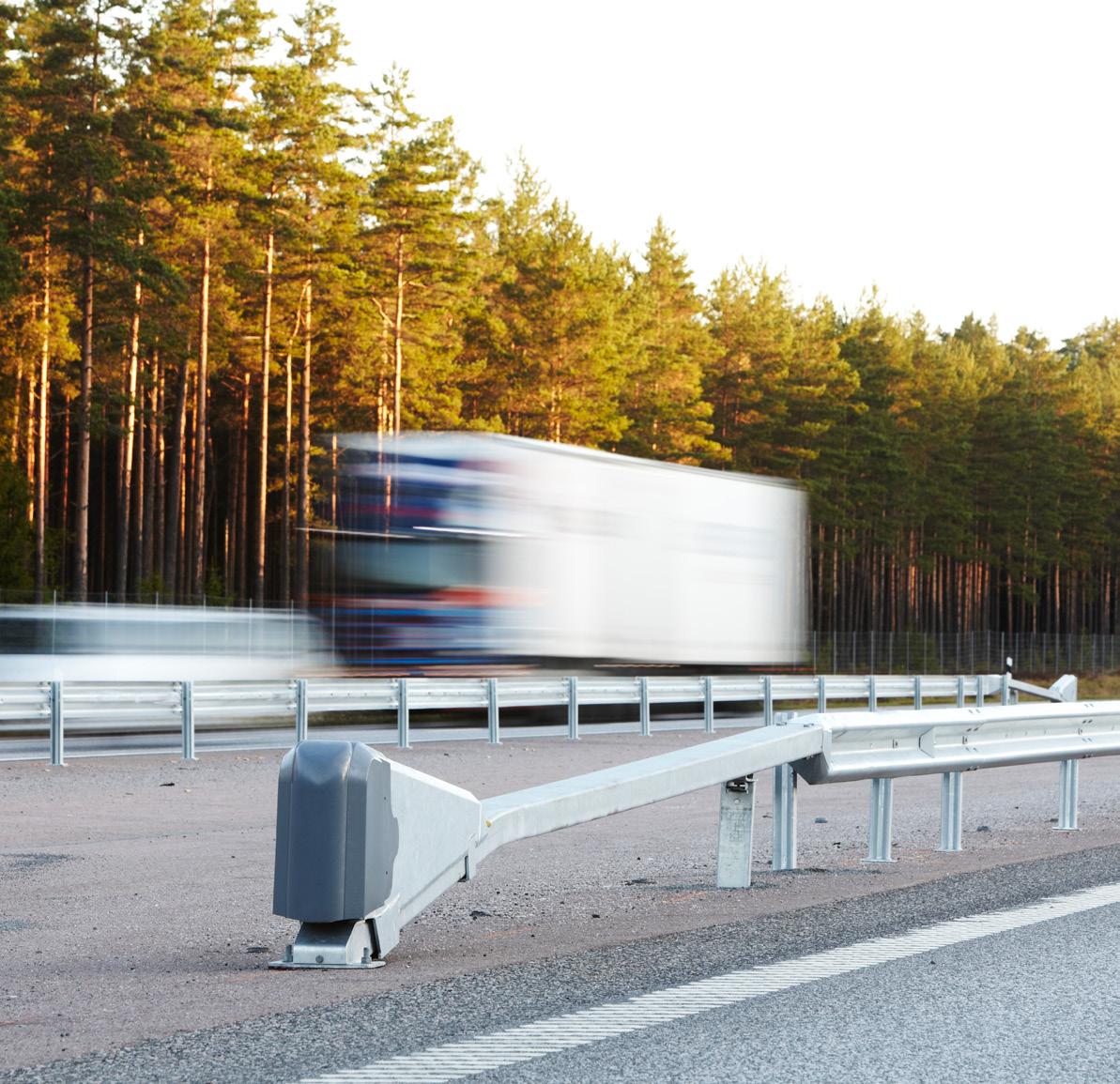

11
nShift and Softlogs for land-based transport, we must have carriers that are receptive to such solutions. There is no more booking via email and telephone. It will be done via digital systems, and preferably via our own ERP systems. Everything that is booked manually loses valuable insight and data, and fortunately our partner DSV Road (among others) is fully aware of this. I also believe that carriers which facilitate such solutions are the ones which will do best. Those which continue with the manual method will not have a bright future.”
Steinar adds, “During a calendar year, we book up to 15,000 trucks around Europe and the Middle East. About one third of these are FLTs (Full Load Trucks), which deliver raw materials and finished goods to factories, projects and customers. This, in turn, involves a large amount of invoices (approximately 20,000 yearly) that must be checked, allocated and approved. Each invoice
can have up to 20 pages, and it goes without saying that this is timeconsuming, expensive and provides no added value. On top of this, there are CMR documents, customs clearance costs and many manual procedures that are necessary for the trucks to enter and exit countries that are not part of the EU. In 2022, this should not be necessary.”
Saferoad has therefore entered into a collaboration with Softlogs, to gain control over all these procedures, and not least, the costs. Steinar says, “We want to know with 100 per cent certainty whether what we pay is in line with what has been agreed and stipulated in the contract and lead timetables. With the help of Softlogs’ cloud-based solutions, we precisely get this control and insight. Automation for invoice checking, accounting, cost allocation and freight deposition are keywords for their solutions. This provides a good and secure basis for Saferoad's freight analyses, reports and BI.
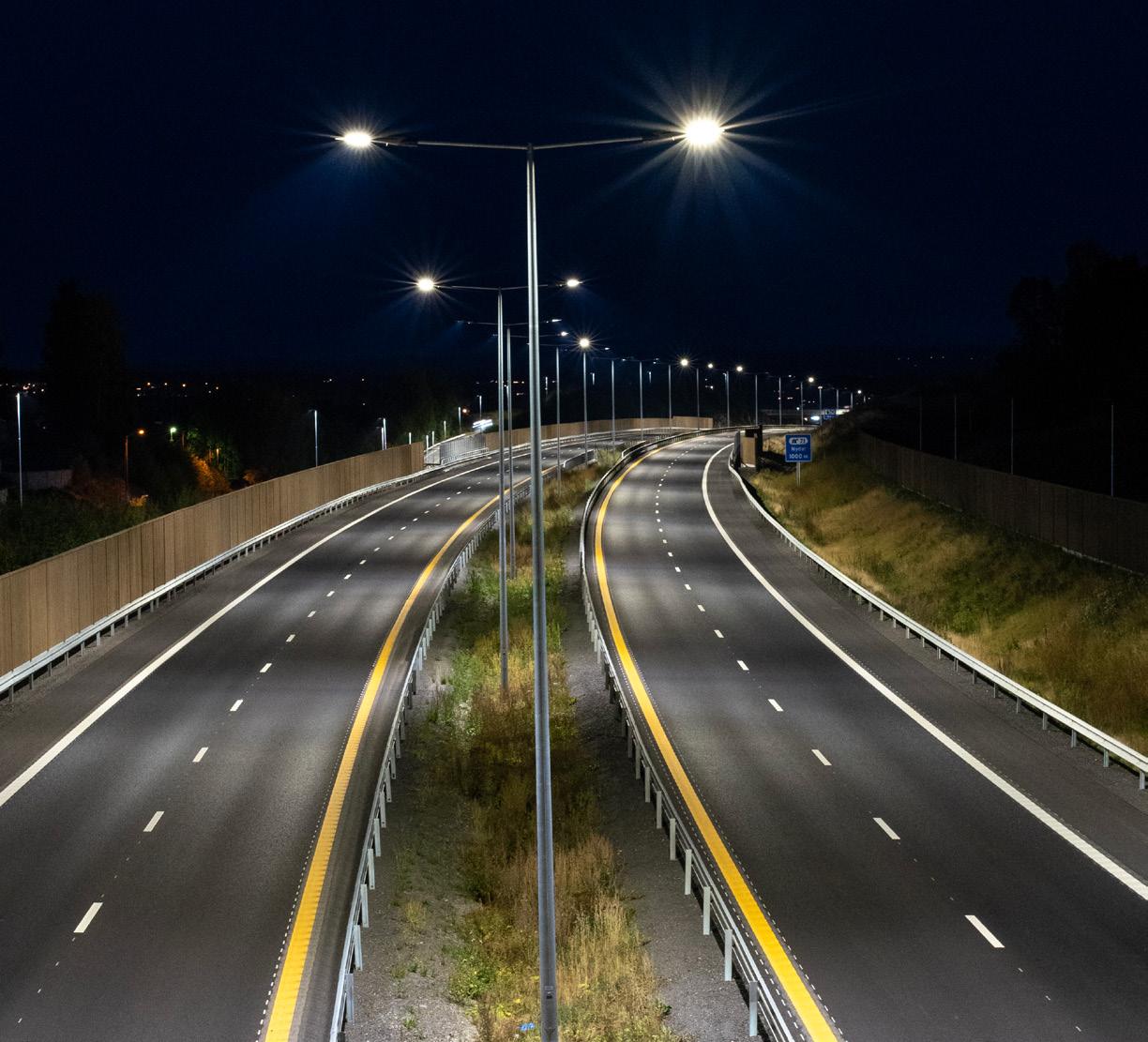
“NShift has the world’s biggest carrier library, so they are a key player for us. When we are up and running, we will have more control over all our transport across Europe”
12
For more efficient supply chains
Our Transport Management System provides full visibility and control of your supply chain:
Precise management of shipments between multiple sites, inbound from suppliers, via plants and warehouses, to customers, keeping costs in control and customers satisfied
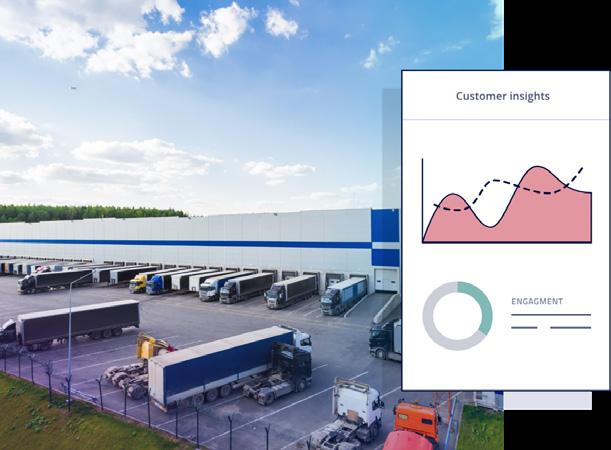
Built for collaboration across teams and organizations with one common goal - an efficient supply chain
Pre-built carrier connectivity is at the core of our solution, making implementation fast and carrier communication effortless
We offer full process support and enable your organization to build an agile, sustainable supply chain For more information
13
www.nshift.com
Worry less, ship smarter
Committed to Freight Cost Control Bring it all together
+75 customers in more than 13 countries
We at softlogs work exclusively to simplify everyday life for transport buyers and carriers. Our solutions are hundred percent cloud-based and focused on automatic processes. Full digitisation of freight costs gives the customer good control and overview of all freight related elements.
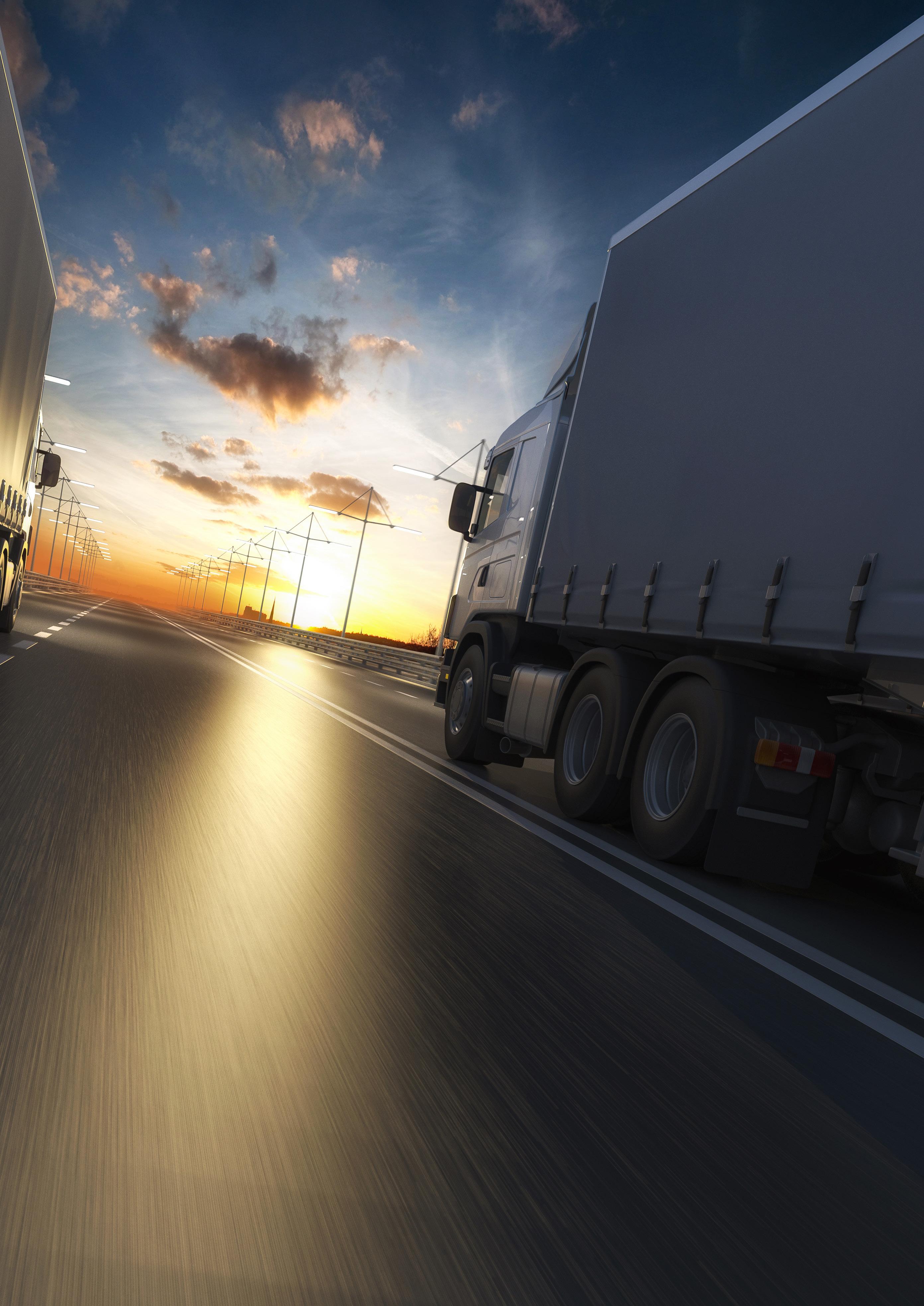
Automation for invoice checking, accounting, cost allocation and freight deposition are keywords for our solutions. This provides a good and secure basis for freight analyses, reports and KPI’s.
With the help of advanced algorithms and machine learning we analyse deviations over time and find unprofitable processes.

Proud to explain key elements in our collaboration with Saferoad :
Freight invoice management


EDI integration with more than 250 carriers gives a flexibility to have the same process for freight invoice management independently of carrier. Full visibility and transparency both for Saferoad and the carrier.
Cost allocation
Collecting and consolidating information from multiple sources (orders, booking, freightinvoices) to be able to allocate, connect or split the cost on various detail levels. Giving Saferoad the possibility to look at freightcost on all levels – legal entity, department/store level, order, products etc
Invoice posting and depositions
With softlogs cloud solution - Saferoad holds an automated invoice posting functionality , not only on invoice level but on shipmentlevel and/or charge level. This is made available through an advanced rule engine which can capture freightcost, shipments and connect it to correct costcenter and account. The same ruling is valid for depositions – get full control even though invoice is not received in accounting.
Carbon Footprint
With Softlogs carbon footprint report along with other KPI reports, Saferoad can easily supplement their environmental accounting. Softlogs offers visualisation of Saferoad’s carbon footprint focusing on what actions sub-companies needs to take - to create a greener world.

“This means that Softlogs is sitting on a lot of transport data, which will give us a good foundation for reporting our transport CO2 footprint. But as I said earlier, we are not content to simply report our present values. We will optimise, consolidate and find the best possible environmentally-friendly solutions to reduce our emissions. To achieve that, we must also have control over our transport data. And this is what we get with Softlogs.”
can appreciate live data, and having a target to reach together with your teammates adds a bit of excitement.”
As for Saferoad Group’s vision for the future, Steinar says the main priority is on its ESG commitments. He concludes, “We aim to increase circularity and reduce our climate impact, to produce and deliver sustainable products, to ensure health safety satisfaction of our
“We want to know with 100 per cent certainty whether what we pay is in line with what has been agreed and stipulated in the contract and lead timetables. With the help of Softlogs’ cloud-based solutions, we precisely get this control and insight”
Steinar highlights the importance of bringing fun into the workplace because logistics departments only typically receive feedback when something doesn’t go to plan! He explains, “You don’t get all the positive feedback because when you don’t hear anything, it just means that things are running as expected. We want to create KPIs that show all the positive things that are going on. It is more fun for our colleagues in operations (warehouse, production, procurement etc) to see how things are running and to be able to measure the effect live of the various initiatives they are doing. Everyone
employees, and to achieve a transparent supply chain. When we are buying, producing and delivering heavy goods globally, it is very energy-demanding with high CO 2 footprints. We must and can do something about it. We will not only be measuring our carbon footprint, but we also want to measure it to improve it. Period! Doing things faster and more effectively also gives bigger and better turnover rates, so at the end of the day, green logistics is also commercial and positive for the economy.”
For further information on Saferoad Group, visit www.saferoad.com
15
www.saferoad.com

16

























